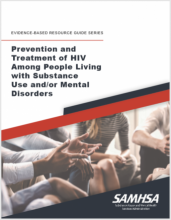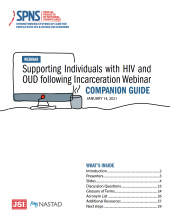
Harm Reduction Hacks is a comprehensive microsite and resource to guide organizations developing new and/or existing syringe services programs in program design, implementation, and organizational sustainability.



Harm Reduction Hacks is a comprehensive microsite and resource to guide organizations developing new and/or existing syringe services programs in program design, implementation, and organizational sustainability.
Language is foundational to how we understand and interact with ourselves and others. Unclear language can lead to confusion and inefficiencies, while stigmatizing and prejudicial language leads to harmful practices and dehumanizes people.
Building on last month’s episode about providing HIV and substance use care for people who are incarcerated, this month the Boston Medical Center Team talks with Dr.
Navigating the HIV and substance use systems of care presents a number of unique challenges, many of which can become more complex depending on a person’s housing, employment, mental health, or economic situation.
In response to an increased risk of overdose, several communities in the U.S. are considering establishing spaces for people to use substances safely.
The growing opioid crisis across the United States has resulted in an increase in new HIV diagnoses.
For Boston Health Care for the Homeless nurse Megan Sonderegger, providing client-centered care means literally meeting her clients where they are.
There are so many factors that impact adherence and health outcomes. During this Connecting Care podcast, Drs. Alex Walley, Jessica Taylor, and Sim Kimmel discuss HIV prevention and treatment among people who inject drugs.
This technical package, a collaborative effort between CDC and NASTAD, provides a broad framework as well as evidence-informed strategies and approaches to support the planning, design, implementation, and sustainability of new and existing syringe services programs (SSPs).